If you follow me on Instagram it’s likely you’re aware that our little guy has had a rough few months. In mid-October, Jackson contracted Leptospirosis. A bacterial disease that attacks the kidneys – fast. It was only a matter of days from the time Jackson was his normal healthy self, to the time we were told our little man wasn’t going to make it. The months following Jackson’s diagnosis have been a rollercoaster for my family. Through all the ups and downs, hospital stays and dozens of follow up visits – I’m happy to report that our little guy is doing well. He’s a fighter! For all you dog owners out there, PLEASE READ THIS.

WHAT IS LEPTOSPIROSIS?
Leptospirosis is a bacterial infection found in wildlife, passed via urine into water sources where it can reside for long periods of time. This bacteria can exist in any surface water, moist soil or recreational water source (ponds and lakes.) Pets can become infected with Leptospirosis by drinking, swimming, sniffing or walking through contaminated water. The bacteria itself enters the bloodstream through mucous membranes (eyes, nose, mouth) or a cut on the skin. In other words, your dog can potentially be exposed to Leptospirosis any time they come in contact with wildlife or their habitat. If you live in rural areas, this is a daily occurrence for your pet. It’s important to note that Jackson is NOT an outdoor dog. As a matter of fact, the most outdoor activity he gets is a daily walk on a leash (unfortunately we don’t have a yard to let him run around freely in). My point being, if our little guy could contract this disease, then anyone’s dog can.
Symptoms of Leptospirosis include fever, loss of appetite, vomiting, diarrhea, dehydration, weakness, depression, lethargy and jaundice. In the most severe cases, the disease can lead to kidney failure…making Jackson’s case the worst case scenario. Unfortunately, the symptoms of Leptospirosis mimic the symptoms of many other diseases, making it difficult to diagnose without proper tests being performed. It was weeks before we knew that Jackson was infected with Leptospirosis. Weeks he would not have had, if it weren’t for the amazing staff at Tufts University Cummings School of Veterinary Medicine in Grafton MA.
JACKSON’S STORY
I was on my lunch break at work when I got a call from our local vet saying Jackson’s blood work had come back. James had brought him in for testing 2 days earlier, after he became extremely lethargic out of nowhere. He also hadn’t eaten in 24 hours. I expected our veterinarian to tell me that Jackson was sick and prescribe a medication to get him back on his feet in the next or so. Unfortunately, the call I received was very different. My vet told me that Jackson’s blood work came back showing a creatinine level of 12. Creatinine is a measure of kidney function. To put things into perspective, a dog’s normal creatinine levels are below 1.4 – the lower the number, the better. Jackson’s levels were double what’s considered “kidney failure”. I was told Jackson was not going to make it and that there were no options to save him.
We were completely devastated upon hearing this news. How did our healthy 6 year old pup get so sick so quickly? Confused, upset and heartbroken, my husband I decided to get a second opinion. We brought Jackson to New England Veterinary Center (excellent place if you live in the area) to have blood work done for a second time. The blood work came back the same. The staff at NEV explained that although Jackson’s case was severe, there were options. We were advised to bring Jackson up to Tufts Veterinary School in Grafton MA, where he would likely be put on dialysis. We were warned that the procedure would be costly, so much so that most people stop at this point. The decision was clear for us, we weren’t ready to say goodbye to our little guy.
Upon arriving at Tufts a few hours later, we were introduced to Jackson’s new doctor, an internal medicine specialist. She reconfirmed everything we had already been told. She reassured us that she would do everything she could to help Jackson, but that considering his current condition, he had about a 30% chance of survival. We instructed her to move forward. Jackson was hospitalized for 2 weeks in the ICU, where he had dialysis and several operations (I’m sharing some photos below.) It was during his two week stay that the doctors were able to confirm that he contracted Leptospirosis, which had caused acute kidney failure. Every day his kidney levels were monitored and reported back to us. We sat at the edge of our seats in anticipation for every phone call and every day we got good news. Jackson was responding better than expected to his treatment and his kidney levels appeared to be improving.
At the end of his 2 week stay, we were able to bring Jackson home with a creatinine level of 2 – a significant (and surprising) improvement from 12. But his fight was not over. Jackson was sent home with a feeding tube in his neck and a fluid catheter in his back. He had lost about 20% of his body weight (which is a lot for our 6 lb pup) and had a fresh incision running the length of his stomach. For the following three months he required close care and at times, up to 18 injections (of food, water and/or medicine) a day. Throughout those three months, Jackson had ups and downs followed by dramatic increases and decreases in his creatinine levels.
Today marks 4 months since we found out that Jackson was sick. I’m happy to report that Jackson is almost back to his normal self. All his tubes have been removed and he’s back to his normal weight. His creative levels have stabilized at 2.7. This level is still double what it should be, but we have hope it will continue to decrease in the months to come. James and I are beyond happy and thankful that Jackson has made such amazing progress. The care he received at Tufts was outstanding. The doctors who cared for Jackson (or “Jackie boy” as they call him) were incredibly intelligent, caring and compassionate – they were determined to save his life. Jackson greets them with a face full of kisses every time we return. We are so thankful for the care and support we received from Tufts through this long and very difficult journey.
FUNDRAISER!
Over the past 5 months, James and I made many visits to Tufts University Cummings School of Veterinary Medicine, returning almost every week for Jackson’s appointments. In our time spent at the hospital, we learned that the facility is in need of blankets and towels, to help keep their patients clean, comfortable and warm (Jackson was always shivering when we went to visit him!) In honor of Jackson’s survival story, I will be collecting donations for the hospital. All monetary donations will be used to purchase towels and blankets for sick patients. If you wish to contribute, please click the Donate link below. ANY size donation will help (even a few dollars!) I’ll be providing an update when it’s time to make our donation. Thank you for your support!
DONATE
DONATIONS CLOSED. Since Jackson got sick, I have been making every effort possible to spread the word about this awful disease and how to prevent it. The best way to safeguard your pet is with the Leptospirosis vaccination. It is affordable and easy to get. Unfortunately, I was never made aware of this vaccination, which would have avoided both the emotional and financial trauma the disease had on my family. We are so thankful that Jackson was able to get the care he needed to survive, but we also know that not every family would be able to afford treatment. Jackson’s hospital bills were astronomical (comparable to the purchase of a brand new car). It was an amount that would leave many families with no option to save their pet. If you are as passionate about animals as we are, you may consider making a donation to the Henry & Lois Foster Hospital for Small Animals at Tufts University – click HERE to donate. This fund was created to help families who can’t afford the medical bills necessary to treat their pets.

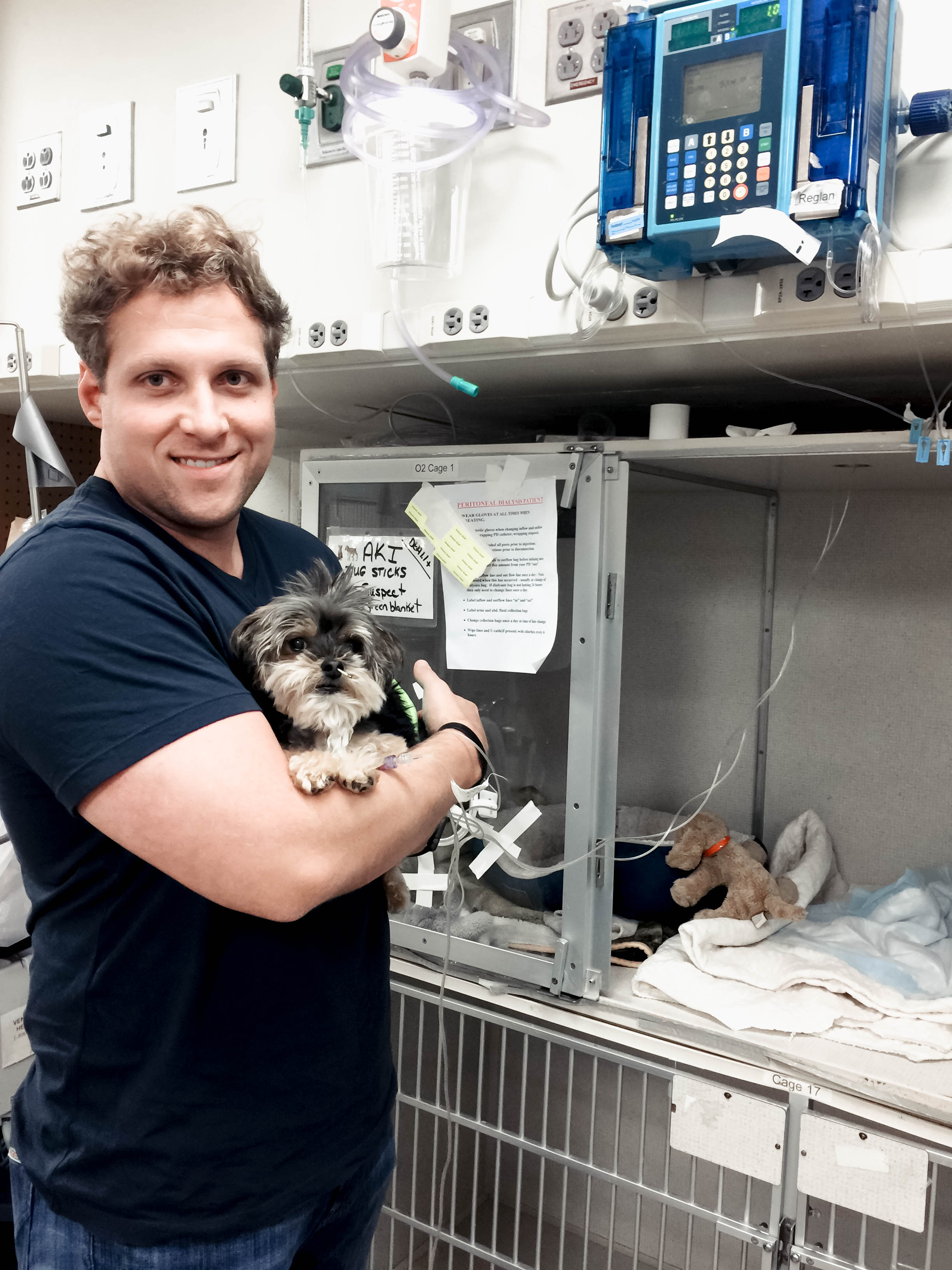
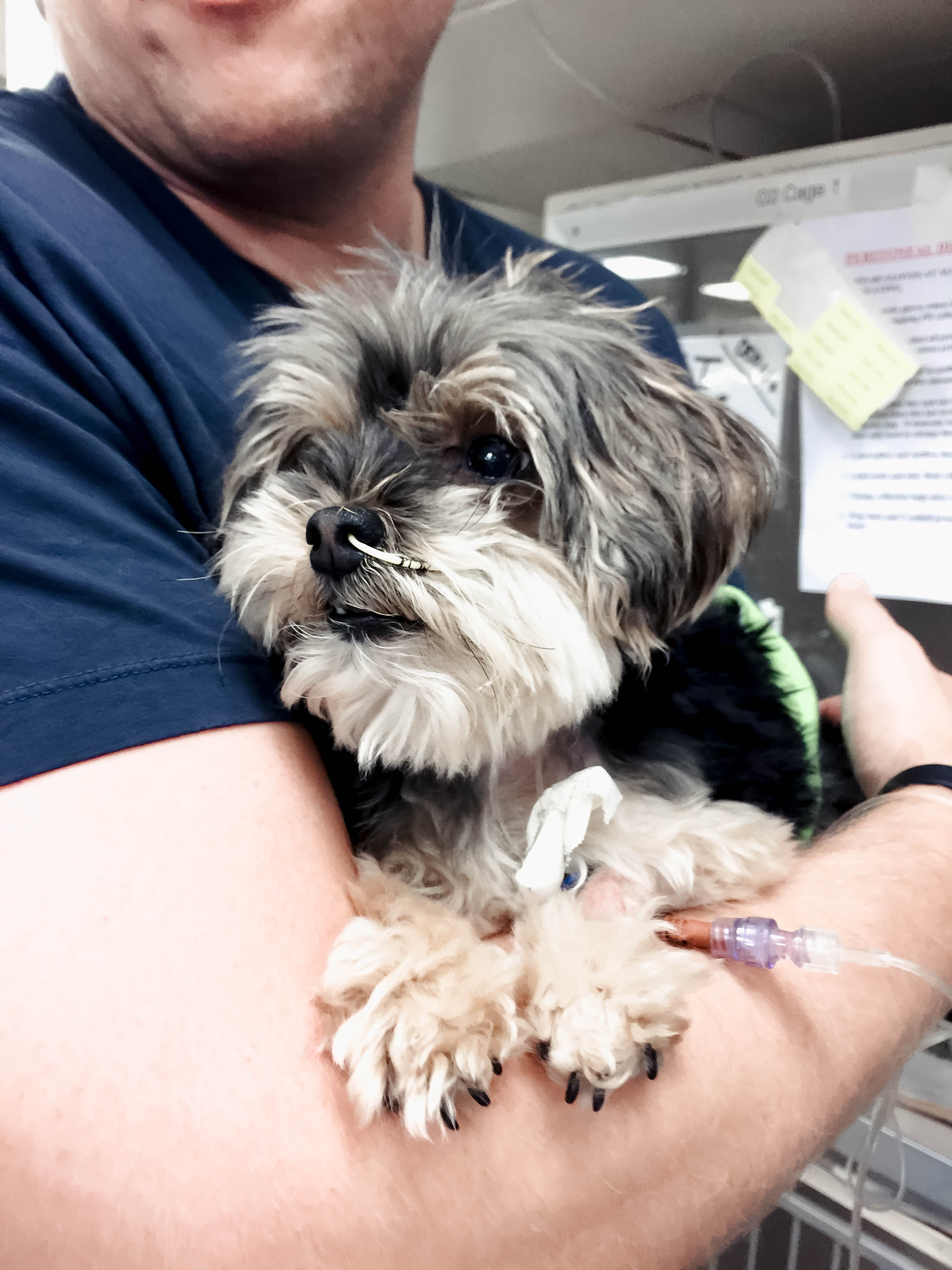
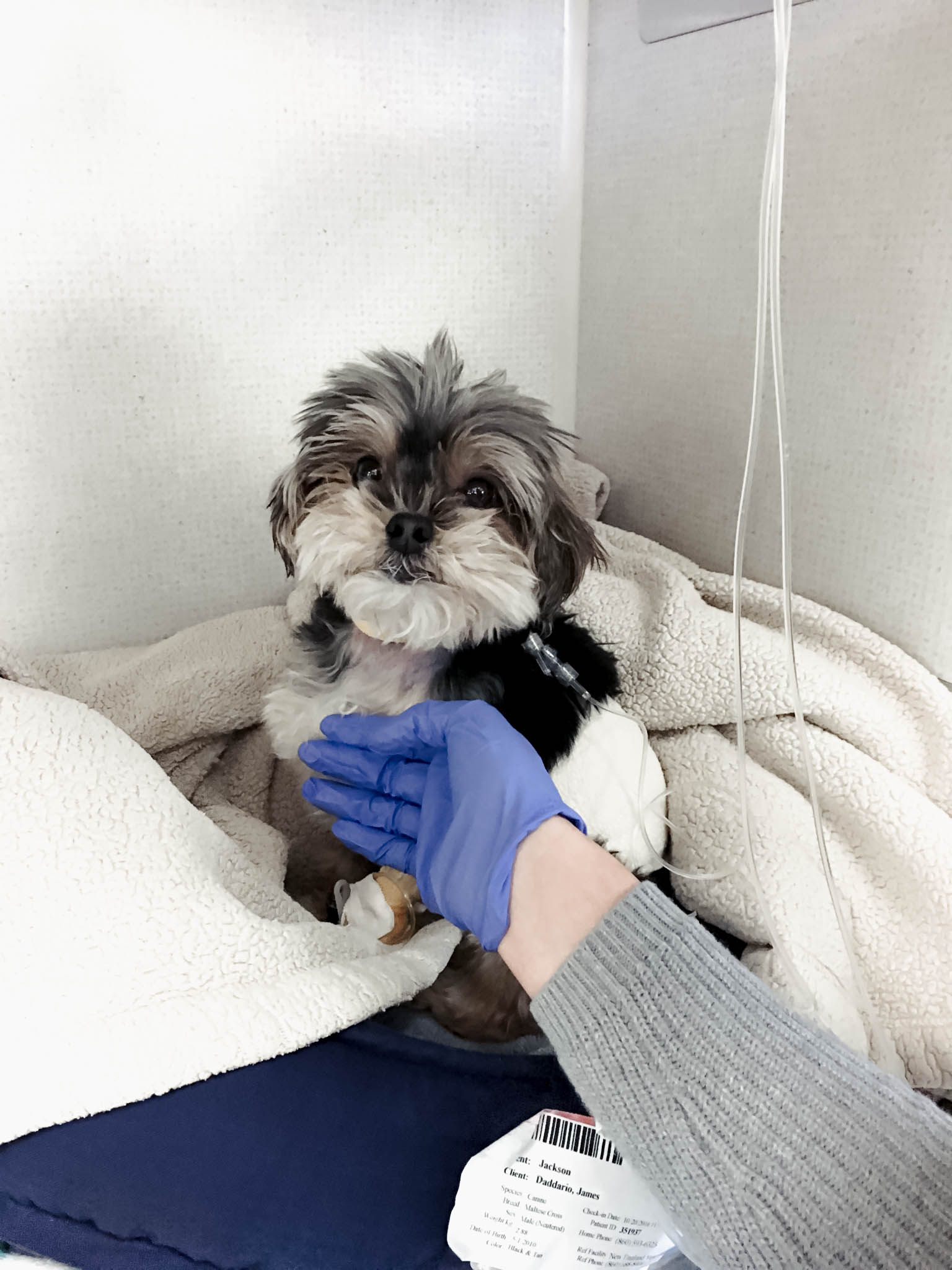

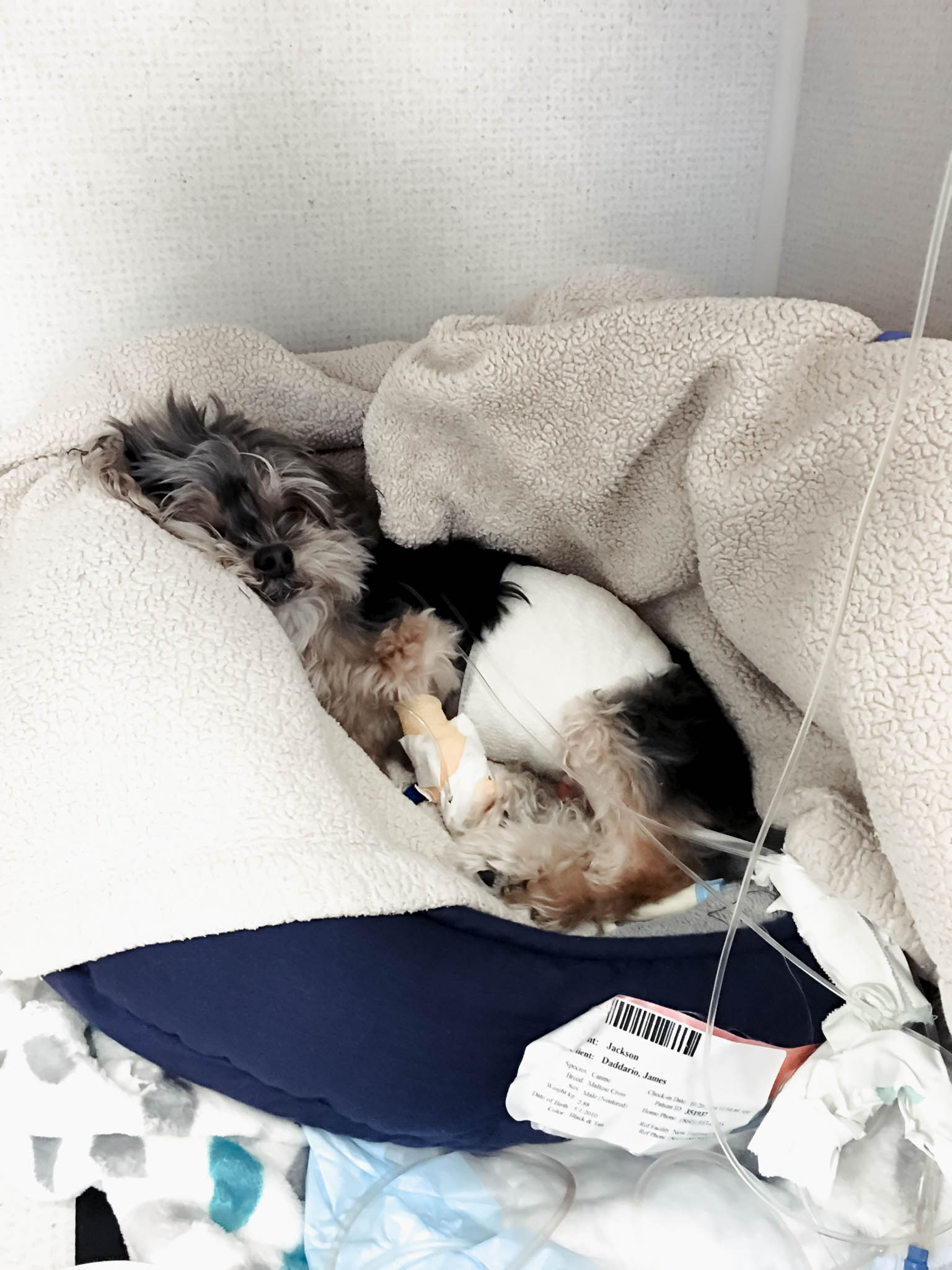
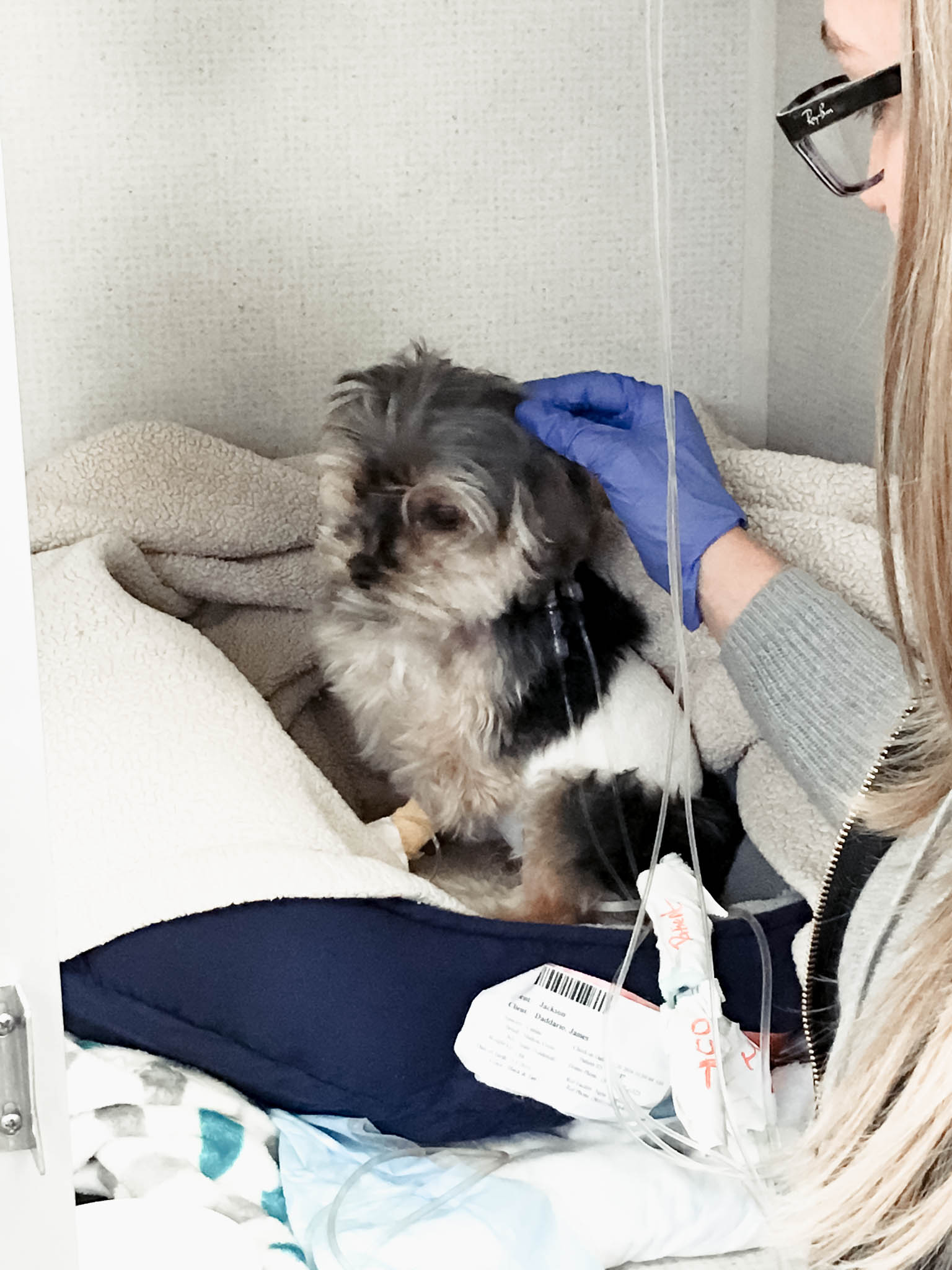



Omg! My nephew Brutus, a 4 year old english bulldog is in ICU here in Toronto Ontario for the same thing. He’s levels are still extremely high. He is getting a feeding tube put in also. We are in despair. What a terrible thing.
Hi Doreen!
I’m so sorry to hear about Brutus! I know how incredibly upsetting this time can be. It’s such a scary and awful disease, but know that much can be done to help our little guys beat this. He’s young and strong. Jackson was considered the “worst case scenario” and he has been doing great the past few months since beating it. Stay positive and hopeful! I’m trying my best to spread the word on this awful disease to prevent other dog owners from having to go through this. Sending prayers your way!!!
Jen
Hey Jen , I lost my dog Taylor to this three years ago, she was ten. It’s great your raising awareness. Great article